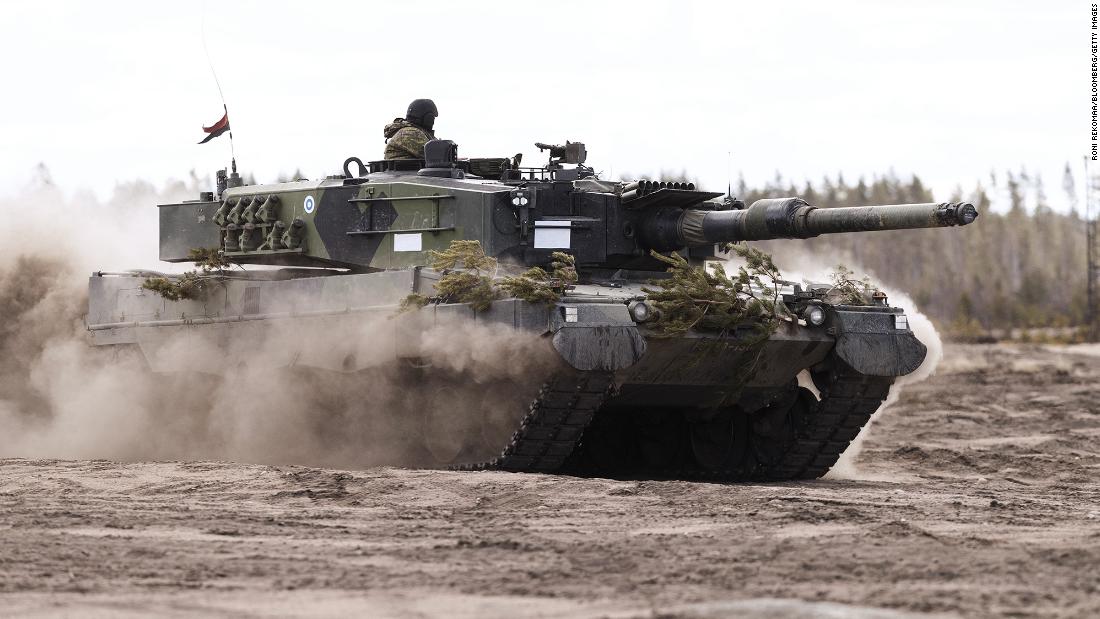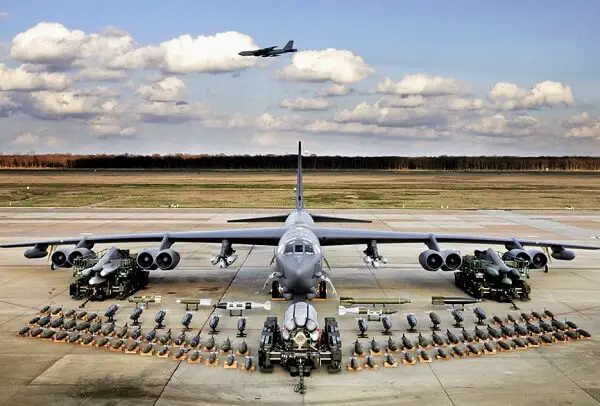
Finnish Prime Minister Sanna Marin
Why Finland Will Seek NATO Membership
And Why I Still Think We Shouldn’t
Kati Juva / PSR-Finland, International Physicians for the prevention of Nuclear War
FINLAND (May 11, 2022) — Finland for decades has regarded itself as part of Western society, with shared values such as human rights and democracy. Step by step we have come loose from the sphere of interest of Russia and the former Soviet Union, first by ending our Agreement of Friendship, Co-operation and Mutual Assistance in 1991, when the Soviet Union came to its end, then by joining the European Union and many other European organizations starting in 1995.
Despite this, we have always tried to keep good relations with Russia, with which we have a 1,300-km common border. These good relations are essential to our security, but are also good for the economy and for reducing tension in Europe. Finland, however, has throughout this time provided for its own defense with modern equipment and compulsory military service.
Until this year, the vast majority of Finnish people and Finnish politicians have thought there was no need to join any military alliance. We have not felt any military threat from Russia and have thought that a non-allied status gives us good ways to work with different countries and to promote conflict solving in the world. For a long time, however, we have had a close partnership with NATO. We have participated in common military exercises and our weaponry is NATO-compatible.
For many years Finland has had a “NATO-option,” which means we have maintained the right to join NATO if we want to. We have opposed Russia’s stance that this would be a hostile move by both Finland and NATO towards Russia. Neither NATO nor Russia will decide whether we join any alliance. This option has been very important for our security policy but also for democracy and independence. No one can dictate our position to us. Even the peace movement has silently accepted this option.

The War in Ukraine Changed Everything
All this changed overnight when Russia attacked Ukraine in February, although Russia’s annexation of Crimea in 2014 and its strong opposition to NATO’s possible further expansion to the east (meaning also Finland and Sweden) had given us warnings. Russia’s aggression towards its neighbors has been increasing for a long time.
Seeing in Ukraine what can happen to a country without NATO’s security guarantees has caused the Finnish people to reconsider our NATO option. The whole nation experienced a déjà vu from 1939, when in the Winter War we were attacked by Soviet Union and had to fight alone. We kept our independence, but lost parts of our territory.
So, during a very short time the public opinion about joining a military alliance has changed from a quite cautious consideration to a fairly positive view. In recent polls 65% of Finns are for joining NATO while 22% are against, with the rest not decided. Most politicians and parties support joining; only some MPs from the Left League are publicly opposing. Our Green Party Minister of Foreign Affairs, Pekka Haavisto, has asked if this is not a time to put the NATO option to use, what would be? If we don’t use it now, he added, the option would lose its credibility.
Thus, it is certain that Finland will apply to join NATO in the very near future. And if we do, it would be logical (and probable) that Sweden would join, too. We are seeking military security. The trust for Russia has been gone for decades.
Of course it is clear that Finland’s situation is different from Ukraine’s. We have much better national defence, and Russia knows it. Also there cannot be any noteworthy misinformation within Russian leadership that the Finnish people would regard them as “liberators”—not even the Russian speaking Finns. We are not part of the “Russkij Mir”—Russian world. And, of course, the Russian army has turned out to be in a much worse condition than anyone thought.
What Russia can, and possibly will, do against Finland if and when we seek NATO membership is engage in a hybrid influence campaign. They can organize cyberattacks (we have seen them already but not very strong or clever) and bring thousands of asylum-seekers to our borders (as Belarussia has done, and Russia in 2015 on a small scale in our Lapland).
For now, Finland does not actually need any military security guarantees from NATO, and NATO would be of no help in such hybrid operations. But decisions of joining a defence alliance are made for decades, and we have to prepare for possible Russian aggression in the future.
All this is understandable for me. We live in times when, in Europe as in other parts of the world, military security guarantees can be seen as useful for small countries with large, powerful, unpredictable neighbors.

NATO and Deterrence
Unfortunately, NATO is a nuclear alliance and its military doctrine is based on nuclear weapons and deterrence. This is also noted in the Finnish government’s report in April 2022 on different aspects of joining NATO: “With a common defense NATO is aiming to raise the threshold for an attack as high as possible. NATO’s preventive impact is ultimately based on the military capability of the United States and the nuclear deterrence.”
Also, NATO itself has stated (in 1995, and it’s still valid), that “New members will be expected to support the concept of deterrence and the essential role nuclear weapons play in the Alliance’s strategy of war prevention as set forth in the Strategic Concept,” and later “New members should be eligible to join the Nuclear Planning Group and its subordinate bodies and to participate in nuclear consultation during exercises and crisis.”
NATO has strongly opposed the Treaty on the Prohibition of Nuclear Weapons (TPNW), which is very regrettable. NATO claims that is has a legal right to have nuclear weapons.
Thus, if Finland joins NATO we would be part of NATO’s nuclear deterrence, which is a very dangerous and unstable construction. Even though the number of nuclear weapons has been reduced up to one fourth from the times of Cold War, the overkill capacity is still several hundred fold. There are still more than 13,000 nuclear warheads, most of which are owned by Russia and the US. Of these about 2,000 are on continuous alert in silos, on bombers, or on submarines and can be launched within 15-20 minutes.
Deterrence is based on the idea that when both sides have the capacity to destroy the enemy totally, no one dares to use them. The result of using nuclear weapons would be Mutual Assured Destruction (MAD). The trouble is that deterrence relies on decision makers always thinking rationally, and on technology that never fails. One mistake anywhere in the chain can result to the end of our civilization.
A few years ago we were worried about the mental stability of the President of United States. Now in Russia we have a leader who seems to be ready to use nuclear weapons if Russia’s existence would be endangered. We have no idea what he means by this. Welfare of all Russian-speaking people? His rule? Also nuclear-armed India and Pakistan during the few last decades have had skirmishes on their borders and have used warmongering rhetoric.
North Korea is constantly threatening its neighbors with nuclear weapons. We cannot risk the existence of the whole world based on confidence that there will never be a leader in any nuclear-armed state who will not, in a desperate situation (to him/herself), use nuclear weapons.

Nuclear War Can Begin by Accident
Another fundamental flaw in the deterrence concept is that nuclear war can begin by accident. There have been numerous “close call” situations, when authorized people have not launched their missiles despite an alert of the enemy’s weapons coming in.
In September 1983 there was an alert in the Soviet Union’s detection base that US missiles were on the way to Moscow. Lieutenant Colonel Stanislav Petrov decided to wait (against orders) for confirmation of what he saw on radar—which never came. The automatic system had misinterpreted the sunbeams reflected from clouds as missiles.
In 1979, the North American Air Defense Command (NORAD) announced an incoming nuclear attack when someone had put a rehearsal simulation in the computer. Nuclear bombs have been dropped by accident on a glacier of Greenland, in the sea near Spain, and in North Carolina. Fortunately, the safeguards on these nuclear bombs worked and they did not explode.
Nuclear weapons and deterrence are a threat, not a security guarantee. They destabilize rather than bring peace. I do not want to be—and do not want Finland to be—under the “nuclear umbrella” and its shadow of nuclear deterrence.

Future – Finland and Sweden in NATO?
NATO is led by the United States and two other NATO countries have their own nuclear weapons. US nuclear weapons have been placed in five other NATO countries. It appears that small, non-nuclear NATO countries have very little so say about NATO’s nuclear policy.
Finland and Sweden have not signed the Treaty on the Prohibition of Nuclear Weapons (TPNW). The reason for this has been pressure from the US and NATO. At least in Finland, the high civil servant in the Ministry of Foreign Affairs has stated that we cannot sign such a treaty because it would endanger our good relations with the US and we could lose the credibility of our NATO option. The whole point of applying for NATO membership is to be accepted, and signing TPNW might endanger this, they say.
Finland and Sweden are going to the 1st Meeting of State Parties of the TPNW as observers. Moreover, three parties out of the five in the Finnish government (the Greens, Social Democrats, and the Left League) have stated that Finland should join TPNW.
In many NATO countries, the opposition towards the TPNW has not been as strong as suggested in NATO´s official statements. Germany and Norway are going as observers to the TPNW meeting and, according to Norway´s government report, signing the TPNW would not be in contradiction with NATO membership. In any case, what seems clear is that Finland will not take any nuclear weapons on its territory even if/when we join NATO.
Our current law on nuclear security prohibits any nuclear explosives in Finland, and both politicians and people in recent polls have stated clearly that we want to stay nuclear weapons free. I doubt NATO would give us nuclear weapons even if we wanted them. Some debate is going on about NATO’s permanent military bases, but Finland is probably very cautious about allowing them, as well.
In the future NATO will likely have five Nordic countries without nuclear weapons. Many of these countries have a history on promoting nuclear disarmament. We could try to create a nuclear-free Nordic zone within NATO and, at least with Norway and Sweden, begin to promote the TPNW and the possibility to join it despite NATO membership.
If keeping the NATO option has been the main reason for Finland not to sign, that argument will lose validity if we become members. I doubt NATO would expel us if we sign TPNW. Of course there will be tremendous pressure from the US, but Finns are known to keep their own mind even when pressured by a great power.
So all hope for nuclear disarmament and moving ahead with the TPNW has not been lost, even in this dark period of war and threats to use nuclear weapons. At the same time, knowledge of the disastrous consequences of the use of nuclear weapons and the demand for urgent nuclear disarmament has increased. Even within NATO, we in Finland can continue to work for this.
Kati Juva is a member of the Board of PSR-Finland and is coordinator of ICAN Finland. The opinions expressed here are her own.
Posted in accordance with Title 17, Section 107, US Code, for noncommercial, educational purposes.